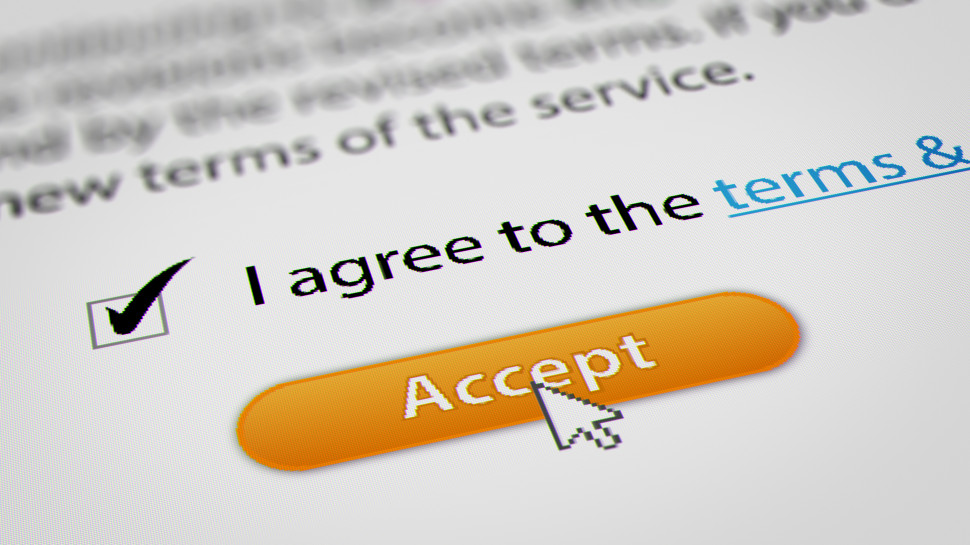How do I know if my broadband contract has ended?
Find out how to avoid paying over the odds for your broadband when your contract ends…

When you first sign up for a new broadband deal, one of the last things you’ll probably think about is what to do when your contract comes to an end. After all, it can be quite a considerable amount of time before you really need to consider it, especially if you've chosen a 24-month deal.
However, the reality is that if you don’t give it some thought nearer its end, you can risk being moved onto a costly rolling agreement or one which ties you into something more expensive.
That said, there are now regulations in place for providers which means they should give you a heads up about when your contract is going to end and what options you have - but again, some of us can miss this or forget they need to take action.
So to help you out with this situation, in this guide we’ve explained everything you need to know about what options you have and what you can do when your broadband contract is ending - which should be enough to help you avoid any unexpected increased bills.
What does it mean to be ‘out of contract’?
In simple terms, being ‘out of contract’ with your broadband means that the agreement you made with your provider has now ended and the previous terms no longer apply.
Typically, this will see you start paying a different monthly rate but you’ll keep the same services. But, this can vary from provider to provider.
Ofcom’s ‘End of Contract Notification’ rules
You shouldn’t get caught out by your contract expiring though, even if you’ve forgotten when your broadband contract is meant to end. This is because in February 2020, the UK communications regulator, Ofcom, introduced new rulings that demand our internet service providers (ISPs) give us notice that our contracts are coming to an end.
These are now known as ‘end-of-contract notifications’ (ECN) and they are meant to include/cover the following information for customers:
- when your contract ends;
- the price you’ve been paying until now, and what you’ll pay when your contract is up;
- any notice period for leaving your provider;
- your provider’s best deals, including any prices only available to new customers.
- details of other contracts that are taken as part of a bundle, including the end dates of any commitment periods for those contracts
With this information, you should then be able to make an informed decision about what you choose to do with your broadband going forward. Providers are then also obliged to tell you what their best deals and packages are at that time.
When and how will I receive my end-of-contract notification?
How and when you will get this ECN information can depend on your provider and what setup they have in place. The rules given by Ofcom state that “phone, broadband and pay-TV companies must contact you between 10 and 40 days before your contract comes to an end” and that these alerts must be “sent by text, email or letter”.
You can also of course check any time with your provider when your contract expires and get the details of what your current broadband package includes. Most ISPs have online accounts for their customers where all this information can be found, but you should also have the option to call or email them if this direct approach is your preferred method of communication.

What happens if I don’t do anything when I’m out of contract?
As we’ve alluded to earlier, if you don’t do anything when your broadband contract comes to an end - even if you’ve had your ECN - there are a few things that could happen. It can be some or a combination of the following:
- You get moved onto a monthly rolling cost with the same services
- This monthly cost increases to what the provider decides the price will be at that point
- The monthly cost increases to the terms you agreed in your initial contract
- You automatically renew your contract on the same terms
- You automatically renew your contract with different terms
What are my options if I’m out of contract with my broadband?
With the above points in mind, having control of the situation is the best approach to take. As such, when you’ve had your ECN - or you just know your broadband contract is up for renewal - you may wish to try the following:
Stay with your provider
If you’ve been happy with your existing broadband provider, then you can always stay with them and sign a new contract. However, if this is the case, make sure you speak with them directly and ensure they are offering you the same (or better) terms as before.
It might be the case that they still want to put your monthly costs up, or maybe change aspects or benefits from your old deal, so be prepared to negotiate or barter with them.
Switch to a new provider
If you hit a brick wall with your negotiations, or you in fact wanted to change to a different provider all along, you’re perfectly entitled to do so when you’re nearing the end of your contract, or you’re already out of contract.

How to find the best broadband deals when switching provider
For those of you looking to switch, we can help you with this too. We have a guide to the UK’s most popular broadband providers that can explain more about each of the leading ISPs and what they have to offer.
Alongside this, you should check out our guide that explains how you can find the best broadband deal for your needs. This can be particularly useful if you’ve been with a provider for an extended period, as there might now be faster Full Fibre packages available to you, or you could get an improved broadband and TV bundle.
Equally, if you already have an idea of what broadband tariff you want to switch to, then our guide to the best broadband deals should be able to point you in the right direction. In addition to this, if you enter your postcode into the widget below we will also show you what broadband deals are specifically available in your area.
Get daily insight, inspiration and deals in your inbox
Sign up for breaking news, reviews, opinion, top tech deals, and more.
Rich is a freelance copywriter and content strategist with over 10 years' experience. His career has seen him work in-house and in various agencies, producing online and offline content marketing campaigns and copywriting for clients in the energy industry.
